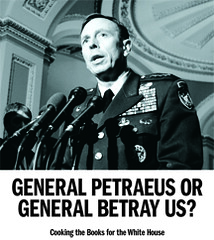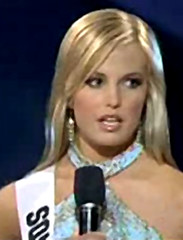Everybody likes talking about Mark Zuckerberg and Facebook. And what’s not to like?
As a Harvard student in 2004, Zuckerberg founded the online social networking Website Facebook. As a young entrepreneur in 2006, he passed on a $1 billion offer from Terry Semel, then CEO of Yahoo! A year later, Microsoft infused $240 million into the social network, putting the 23-year-old on the fast track.
Never mind all that other stuff. Never mind the old ConnectU controversy; it was tossed out, um, for now. Never mind the lawsuit against the Harvard alumni publication for invasion of privacy over an article (irony). Never mind he basically lied to Louise Story of The New York Times about opting in to Beacon, which gathers up information about you on Facebook and away from Facebook.
Never mind. Never mind, because Mark Zuckerberg is sorry.
He’s sorry because “the problem with our initial approach of making it an opt-out system instead of opt-in was that if someone forgot to decline to share something, Beacon still went ahead and shared it with their friends.”
In other words, he’s sorry that you, and me, and probably Louise Story are too stupid to opt-out on his terms and that’s much more important than what he told The New York Times anyway. After all, Facebook, by slurping up our online lives, is only trying to make it easier for us to share with our friends, Facebook, and anyone who might happen to ask. If only we would all see it his way.
Most people do see it his way. Even Brian Solis, who I read regularly, seemed to take one look at Zuckerberg, smile and write “His words, most notably, his apology, humanize the company.”
Sure, Solis also noted the apology was less than perfect, but this sentiment represents how badly people want Facebook to be what it could be and not necessarily what it is.
Solis is not the only one. According to Forbes, everyone from MoveOn, which called the change "a big step in the right direction," to Marc Rotenberg of the Electronic Privacy Information Center, who said "Facebook is learning that privacy matters. It's signaling that it does care about how it's viewed and how important trust is to online businesses," has accepted.
But, what did Zuckerberg really do? If he were a pickpocket, the Beacon fiasco might be likened to stealing a Jackson from your wallet and giving you back a Lincoln with a song, dance, and smile. Zuckerberg is one of the few who can get away with it.
Why? Because many people feel that they need Facebook more than Facebook needs them. And as long as this “feeling” remains, and some people treat Facebook as if it is the air we breathe, then we can expect more creepy than cool for a long time to come.
Far, far fewer people have put any real thought into what is actually occurring beyond the apology. Wendy Grossman is one of them. Brian Oberkirch is another. Jack Flack is yet another.
But in the great game of public relations, where perception and reality don’t always intersect, a few voices can often be outweighed by the many. And that means sincerity matters less than presenting yourself as people expect you to.
So when it comes to Zuckerberg, it seems to me that the world expects everything, except for Facebook being a responsible corporate citizen. Thus, as long as the traffic continues to surge for Facebook, “sort of” sorry will be good enough. Hmmm … no wonder Zuckerberg usually sports a boyish smile.

As a Harvard student in 2004, Zuckerberg founded the online social networking Website Facebook. As a young entrepreneur in 2006, he passed on a $1 billion offer from Terry Semel, then CEO of Yahoo! A year later, Microsoft infused $240 million into the social network, putting the 23-year-old on the fast track.
Never mind all that other stuff. Never mind the old ConnectU controversy; it was tossed out, um, for now. Never mind the lawsuit against the Harvard alumni publication for invasion of privacy over an article (irony). Never mind he basically lied to Louise Story of The New York Times about opting in to Beacon, which gathers up information about you on Facebook and away from Facebook.
Never mind. Never mind, because Mark Zuckerberg is sorry.
He’s sorry because “the problem with our initial approach of making it an opt-out system instead of opt-in was that if someone forgot to decline to share something, Beacon still went ahead and shared it with their friends.”
In other words, he’s sorry that you, and me, and probably Louise Story are too stupid to opt-out on his terms and that’s much more important than what he told The New York Times anyway. After all, Facebook, by slurping up our online lives, is only trying to make it easier for us to share with our friends, Facebook, and anyone who might happen to ask. If only we would all see it his way.
Most people do see it his way. Even Brian Solis, who I read regularly, seemed to take one look at Zuckerberg, smile and write “His words, most notably, his apology, humanize the company.”
Sure, Solis also noted the apology was less than perfect, but this sentiment represents how badly people want Facebook to be what it could be and not necessarily what it is.
Solis is not the only one. According to Forbes, everyone from MoveOn, which called the change "a big step in the right direction," to Marc Rotenberg of the Electronic Privacy Information Center, who said "Facebook is learning that privacy matters. It's signaling that it does care about how it's viewed and how important trust is to online businesses," has accepted.
But, what did Zuckerberg really do? If he were a pickpocket, the Beacon fiasco might be likened to stealing a Jackson from your wallet and giving you back a Lincoln with a song, dance, and smile. Zuckerberg is one of the few who can get away with it.
Why? Because many people feel that they need Facebook more than Facebook needs them. And as long as this “feeling” remains, and some people treat Facebook as if it is the air we breathe, then we can expect more creepy than cool for a long time to come.
Far, far fewer people have put any real thought into what is actually occurring beyond the apology. Wendy Grossman is one of them. Brian Oberkirch is another. Jack Flack is yet another.
But in the great game of public relations, where perception and reality don’t always intersect, a few voices can often be outweighed by the many. And that means sincerity matters less than presenting yourself as people expect you to.
So when it comes to Zuckerberg, it seems to me that the world expects everything, except for Facebook being a responsible corporate citizen. Thus, as long as the traffic continues to surge for Facebook, “sort of” sorry will be good enough. Hmmm … no wonder Zuckerberg usually sports a boyish smile.
























